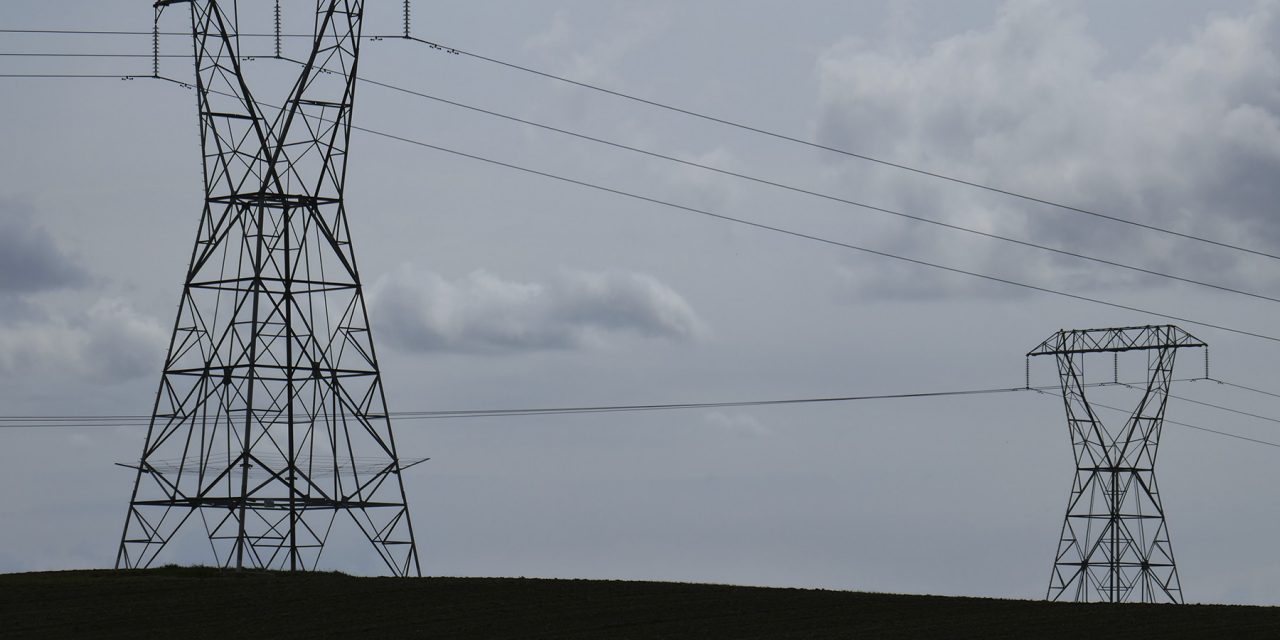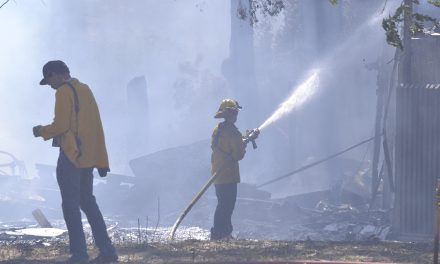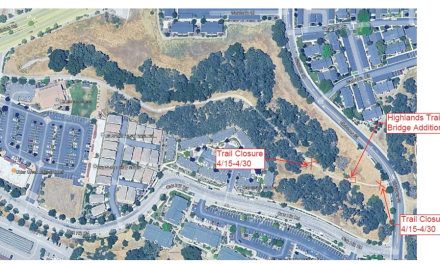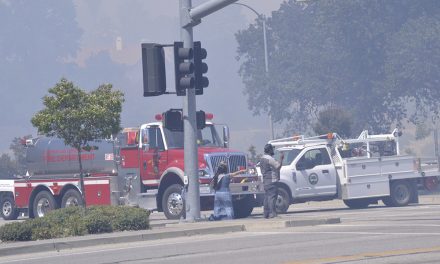Safety concerns, power outages and technology highlights plans to prevent future tragedy
The devastating losses traced back to PG&E over the past several years have upended faith in the company statewide and cost the company multi-billion dollar settlements. Under high level scrutiny by the public and industry safety watchdogs, the company scrambles to recover and maintain its position as California’s largest utility, currently under investor ownership.
From revamping the entire board of directors and replacing the CEO in April to power shutoffs and blackouts over the summer, PG&E continues to take decisive action to repair its image, its power grid, and prevent the next tragedy before it starts.
“Safety at PG&E is the central-most mission of both the management team and the Board. To that end, PG&E made a commitment to enacting leadership changes, including selecting a new CEO and undertaking a significant Board refreshment process to replace a majority of the Board with new independent directors prior to the Company’s 2019 Annual Meeting of Shareholders.” — PG&E News release, April 2019
Over the past 6 years, PG&E caused 1,500 wildfires, including the state’s deadliest fire in history — the Camp Fire in Paradise — and has come under fire from public condemnation and accusations by Gov. Gavin Newsom.
Continuing into 2020, still facing high levels of criticism from safety inspectors and reeling from the recent court settlements totaling more than $15 billion, the company released a new plan to mitigate wildfire, enhance safety, and reduce power shutoffs. PG&E released highlights of a plan to restore safety and faith in the company coupled with a disclaimer that the statements “are not historical facts, including statements about the beliefs, expectations, estimates, future plans and strategies.”
PG&E’s 2020 Wildfire Mitigation Plan Expands, Enhances Community Wildfire Safety Program, Reduces Impacts of Public Safety Power Shutoffs
Highlights Include New Grid Technology Investments and Additional Accelerated Inspections and Repairs to Help Keep Customers and Communities Safer from Wildfires
As part of its ongoing efforts to further reduce wildfire risks and keep customers and the communities it serves safe, Pacific Gas and Electric Company (PG&E) today submitted its 2020 Wildfire Mitigation Plan to the California Public Utilities Commission (CPUC). The plan expands and enhances the company’s comprehensive Community Wildfire Safety Program designed to address the growing threat of extreme weather and wildfires across its service area.
The 2020 Wildfire Mitigation Plan will continue expanded key safety work including:
- New grid technology;
- Hardening of the electric system;
- Accelerated inspections of electric infrastructure;
- Enhanced vegetation management around power lines; and
- Real-time monitoring and situational awareness tools to better understand how severe weather can impact PG&E’s system.
“Our state is faced with an extended and more dangerous wildfire season that demands additional urgent action and coordination across many stakeholder groups to reduce the risk of wildfire,” said Michael Lewis, Senior Vice President, Electric Operations. “The wildfire safety actions and programs described in our 2020 plan detail the company’s unwavering efforts to improve public safety and further reduce wildfire risk.”
Reducing the Customer Impacts of Public Safety Power Shutoffs
PG&E’s 2020 plan includes changes to make Public Safety Power Shutoff (PSPS) events smaller in scope and shorter in duration and to lessen the overall impacts of shutoffs while working to keep customers and communities safe during times of severe weather and high wildfire risk.
Efforts this year to reduce the impact of PSPS events on customers include:
- Installing 592 automated sectionalizing devices on distribution lines with the aim of reducing the number of communities without power during a PSPS event;
- Adding 23 transmission switches capable of redirecting power and keeping substations and transmission lines energized in some areas during a PSPS event;
- Working with local communities to operationalize additional microgrids that will allow customers and essential community services to stay energized during a PSPS event;
- Expanding PG&E’s ability to provide backup power to some critical service providers, such as major transportation thoroughfares, water systems, medical centers and fire departments;
- Enhancing meteorology technology for more precise PSPS events;
- Nearly doubling PG&E’s helicopter fleet from 35 to 65 to patrol lines after a weather event has passed;
- Using two fixed-wing aircrafts with infrared cameras capable of inspecting transmission lines at night;
- Deploying additional field crews to patrol, inspect and repair power lines after a weather event has passed;
- Working closely with local, state and tribal officials to better coordinate for PSPS events;
- Bolstering PG&E’s website and call center resources and continuing to make improvements to information and resources available;
- Improving customer notifications about when power will be shut off for safety and when customers can expect it to be restored;
- Working with local communities to improve the locations, availability and resources provided at Community Resource Centers; and
- Hosting a series of information open houses and webinars to provide information to customers and communities about systematic improvements and PSPS preparedness.
“We know how much our customers rely on electric service. Proactively turning off power disrupts lives and presents its own safety risks, which need to be carefully considered and addressed,” said Debbie Powell, Vice President, Asset & Risk Management, Community Wildfire Safety Program. “Turning off power for safety is not how we strive to serve our customers, and we are committed to reducing the impacts without compromising safety.”
Reducing Potential Ignitions
California faces an increasing threat from catastrophic wildfires, severe weather and higher temperatures, and recent state and federal climate assessments warn the threat is only growing. In 2012, just 15 percent of PG&E’s service area was designated by the CPUC as having an elevated wildfire risk. Today, it’s more than 50 percent.
Multiple factors contribute to wildfire risk and an extended fire season across PG&E’s service area. Prolonged periods of high temperatures, extreme dryness, tinder-dry grass and record-high winds combined with vast tree mortality following a historic five-year drought are increasing the number of wildfires and making them more dangerous.
PG&E’s 2020 Wildfire Mitigation Plan describes forecasted work and investments that will be executed this year to help further reduce the potential for wildfire ignitions associated with its electrical equipment in high fire-threat areas.
The plan addresses an array of wildfire risk factors through new and ongoing measures. Among the safety steps and actions to be taken this year include:
- Pruning or removing more than 1 million trees to keep them away from power lines;
- Installing more than 240 miles of stronger and more resilient poles and covered power lines, along with targeted undergrounding;
- Adding approximately 400 new weather stations this year, which will keep PG&E on track to add a total of 1,300 new weather stations by 2021, a density of one station roughly every 20 circuit-miles in the high fire-risk areas;
- Installing nearly 200 new, high-definition cameras in high fire-threat areas, which will keep PG&E on track to add a total of 600 by 2022, increasing coverage across high fire-risk areas to more than 90 percent of its service area; and
- Coordinating prevention and response efforts by monitoring wildfire risks in real time from the Wildfire Safety Operations Center.
Building Upon Completed Work in 2019
PG&E has completed or is implementing these important safety enhancements and investments to help keep its customers and communities safe. Some of the actions taken in 2019 included:
- Cleared vegetation around thousands of miles of power line via Enhanced Vegetation Management work: Work to keep trees away from power lines continued as PG&E crews and contractors pruned or removed trees with a higher potential for wildfire risk along approximately 2,498 miles of distribution lines, topping the 2019 goal of 2,455 miles.
- Made the electric system stronger and more resilient: PG&E installed stronger and more resilient poles and covered power lines on 171 circuit miles, 21 more miles than the goal of 150 miles. Over the next 12 to 14 years, approximately 7,100 miles will be hardened in high fire-threat areas.
- Added new tech to Wildfire Safety Operations Center: The 24/7 command center for PG&E’s wildfire monitoring and response opened in 2018 and enables better coordination and communication with field personnel and the addition of using satellites for spotting fire starts.
- Completed unprecedented wildfire safety inspections: PG&E has completed 100 percent of visual inspections and aerial inspections of nearly 50,000 transmission structures, nearly 700,000 distribution poles and 222 substations in high fire-risk areas.
- Installed hundreds more weather stations: PG&E installed 426 weather stations, 26 more than the goal of 400.
- Turned on more high-definition cameras: An effective tool for early spotting of wildfires and monitoring real-time conditions, 133 high-definition cameras were installed in 2019, 37 more than the goal for the year.
- Utilized temporary microgrids: In 2019, PG&E safely readied and operated four temporary microgrids to energize more than 4,800 customers during the October and November PSPS events in portions of Angwin, Calistoga, Grass Valley and Placerville.
Open and Transparent Public Process
PG&E’s 2020 Wildfire Mitigation Plan is subject to public review and approval by the CPUC. PG&E strongly supports and encourages its customers and communities to provide feedback and participate in this important public process.
Cautionary Statement Concerning Forward-Looking Statements
This news release includes forward-looking statements that are not historical facts, including statements about the beliefs, expectations, estimates, future plans and strategies of PG&E Corporation and Pacific Gas and Electric Company (the “Utility”), including but not limited to the Utility’s 2020 Wildfire Mitigation Plan. These statements are based on current expectations and assumptions, which management believes are reasonable, and on information currently available to management, but are necessarily subject to various risks and uncertainties. In addition to the risk that these assumptions prove to be inaccurate, factors that could cause actual results to differ materially from those contemplated by the forward-looking statements include factors disclosed in PG&E Corporation and the Utility’s joint Annual Report on Form 10-K for the year ended December 31, 2018, their joint Quarterly Reports on Form 10-Q for the quarters ended March 31, 2019, June 30, 2019 and September 30, 2019, and their subsequent reports filed with the Securities and Exchange Commission. Additional factors include, but are not limited to, those associated with the Chapter 11 cases of PG&E Corporation and the Utility that commenced on January 29, 2019. PG&E Corporation and the Utility undertake no obligation to publicly update or revise any forward-looking statements, whether due to new information, future events or otherwise, except to the extent required by law.















